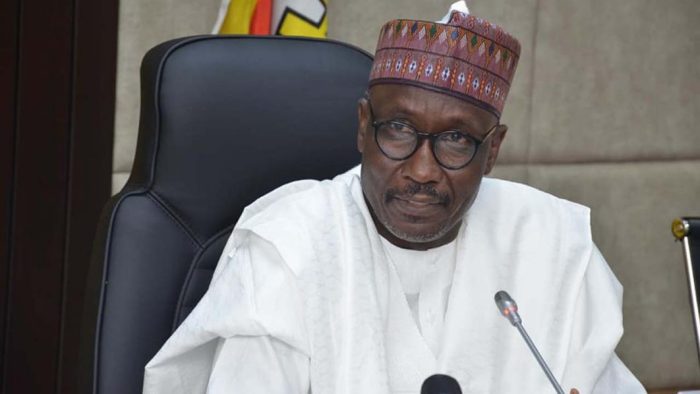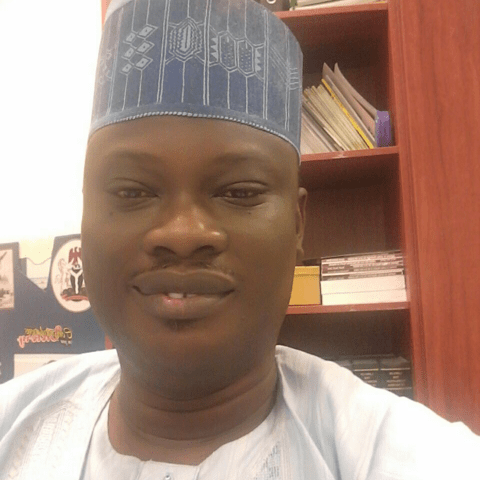
The Wednesday coup in Niger finally succeeded at midnight with soldiers announcing on national TV the dissolution of the Constitution, Parliament and Government.
Sigh…. This makes it the sixth country in the West Africa region to experience a coup since August 2020. Adding Chad makes it the seventh. Early on Wednesday morning, it had been reported that President Mohammed Bazoum had been held in the presidential palace by his own presidential guard. It appeared the guard then had to negotiate with the regular army while shooting in the air to keep anti coup protesters at bay. President Bola Tinubu sent a strong message to the putschists warning them that West Africa was no longer willing to tolerate coups. He also consulted with President Patrice Talon of Benin Republic who is acting as mediator with the military. The US, France, UN, ECOWAS and African Union also condemned the coup calling for a return to status quo.
The coup might be much more about the new battle for geopolitical control of world politics than about Niger and democracy per se. The tradition of French (and Western) political control of Francophone Africa has been under bombardment in the last three years. The French army has been thrown out of Mali and Burkina Faso and have moved into Niger and of course Chad as the last stronghold of France’s neo-colonial military presence in the zone. Meanwhile, public opinion has turned very strongly against France in the Sahel. The people of Niger have been demonstrating, demanding for the expulsion of the French forces but both former President Mahamadou Issoufou and the current Bazoum have remained resolutely with France, against the trend of popular opinion. The military in Niger would be aware about the possible temporary legitimacy they could get by sending France out of Niger. In that sense, the coup was always on the cards. There is no surprise therefore to hear from the coup plotters that a plane load of French paratroopers arrived in Niamey yesterday morning in spite of the announced border closure but have been contained in the airport.
Read Also: Tinubu and the Construction of Democratic Resilience in West Africa, By Jibrin Ibrahim
The problem with France’s ruthless neo-colonial control of its African colonies is the lack of any redeeming features. It’s a long litany of narratives about removing and often killing successive presidents who have sought to liberate their countries from the neo-colonial stranglehold and replacing them with puppets. France would not even allow their neo-colonies pretend to be independent by running their national currencies and public treasuries. Key ministries would often be run directly by French technocrats.
Then Russia came in from the cold and realised that with minimal propaganda efforts and a use of a few social media influencers, they could turn the tide of public opinion against France and dangle Wagner aa a viable mercenary force that could do exactly what a new anti-French leadership wants. The rest, as the saying goes, is history. The geo-politics of the Russia-Ukraine war and the battle between the old regressive hegemonists – the United States and its allies and the emerging hegemonists – Russia, China and their allies is being fought out in West Africa and therein lies the challenge; Africa must learn to play its own strategic game rather than play second fiddle to the game of thrones of the others.
Yesterday, a number of citizens of ECOWAS, drawn from civil society organizations, the private sector, political parties, unions, religious and lay movements, women and youth associations met in Abuja to review the overall state of affairs in the ECOWAS Region and the prospects of realization of the collective vision of democracy and integration for “an ECOWAS of peoples”. The forum noted that after the wave of democratization of the 1990s that raised a lot of hope, the West African region is undergoing democratic regression with an erosion of individual and collective freedoms in a context of growing instability in relation to recurrent socio-political crises and violent extremism. The forum called upon ECOWAS to carry out reforms, including the reform of its Supplementary Protocol on Democracy and Good Governance to save the democratic gains made in the 1990s and put a stop to growing instability.
If the geopolitics of others is taking over our region, it’s partly because we have been allowing our democracy to rot from within. Indeed, in West Africa, the desire for tenure elongation is increasingly marked among incumbent presidents and democratic alternation of power is an increasingly distant prospect in many countries, thus erasing the democratic norms and standards as prescribed by the Supplementary Protocol and the African Charter on Human and Peoples’ Rights.
Read Also: Elections and Bifurcated Nigerians: Can the Judiciary Arbitrate? By Jibrin Ibrahim
Although 80% of the peoples of the region are opposed to the confiscation of political power by third termers; in Togo the President is currently exercising his 4th term in power and preparing for a fifth term next year – 25 years in power by the end of his fifth term. In Côte d’Ivoire, 81-year-old President Alasane Ouattara is exercising his 3rd term and will achieve 15 years at the head of the state. In Guinea, it required a coup d’état to disrupt the regime of the 85-year-old Alpha Conde during his 3rd term. In Senegal, the President has just given up his third term bid after massive mobilisation against him. Let us not forget that the rigging of elections precipitated the Malian coup while third term was the reason for the coup in Guinea. When the political class debases democracy, the open doors for coup plotters.
Read Also: Gov. Wada, Iyayi And The New N3 Billion Bribery Scandal
West Africa must close its doors to the three coups – military takeover, constitutional coups for third term and electoral coup based on massive electoral fraud. The democratic culture of periodic alternation at the head of States promotes accountability and better management of public finances. In 2015 and 2022, ECOWAS had almost succeeded in the reform to make the principle of two-term limit an intangible rule of governance. Each time, the process was stopped by a few Heads of State with anti-democratic agendas – those of Togo and Gambia in 2015 and Togo, Côte d’Ivoire and Senegal in 2022. As we head towards its 50th anniversary, it is time for ECOWAS to make the decision that term limits must be enshrined in golden letters in the ECOWAS Supplementary Protocol and imposed on all, including gerontocrats who want to rule for ever.



